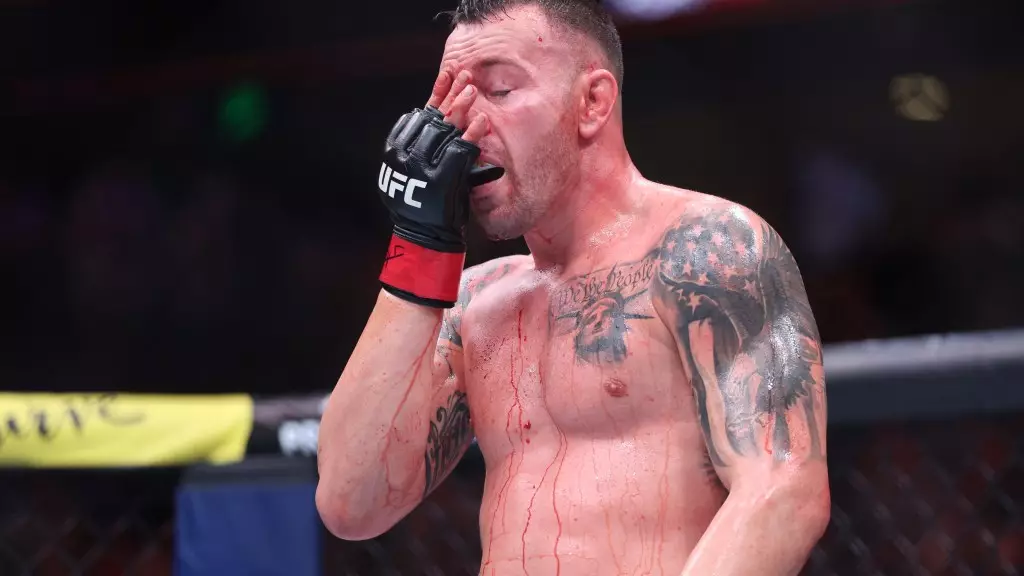The recent matchup between Colby Covington and Joaquin Buckley at UFC on ESPN 63 has stirred diverse reactions within mixed martial arts (MMA) communities. Covington, a prominent figure in the welterweight division, returned to the octagon after a prolonged hiatus, only to face the ire of physical circumstances within the first round itself. Buckley’s aggressive style initially gave Covington a challenging front, leading to severe damage on his right eyelid. The stoppage by the cageside physician during the third round raised eyebrows and evoked discussions on fighter safety versus competitive resilience.
The decision to halt the fight ultimately fell into the hands of the doctors present, emphasizing the fine line between sport and athlete welfare. UFC president Dana White made notable remarks post-fight suggesting that Covington did not vehemently contest the stoppage, implying a recognition of the underlying dangers posed by the injury. While some fans might argue that Covington’s tenacity should have overruled the medical assessment, the reality is that fighter safety must take precedence—especially in an environment as high-risk as the UFC. Critics of the stoppage may find their arguments rooted in a desire for relentless competition, yet the medical team acted within their capacity to prevent further harm.
Dana White’s observations on Covington’s subdued response post-fight shed light on a potential shift in Covington’s public persona. Known for his brash statements and fiery demeanor, it is intriguing to witness a reportedly collected response even in the face of defeat. This change could signify an evolution in Covington’s understanding of his role within the sport—a blend of pride in his fighting spirit and acceptance of the physical limitations imposed by age and injury. Notably, White concluded that had this bout occurred in Las Vegas, the same stoppage would likely not have occurred, suggesting a disparity in referee and medical protocols across different states.
Historical Context and Future Implications
With this loss marking the first time Covington has dealt with consecutive defeats, the implications for his career trajectory are significant. Fighters often grapple with variability in performance and standing, particularly during comebacks. The stakes are high in the UFC, where reputation and the ability to recover from setbacks play crucial roles in an athlete’s legacy. Covington’s resilience in enduring through a grueling fight, despite the pain, sends a strong message about the character and tenacity required in the sport. However, as he strategizes his next steps, the importance of balancing ambition with health comes into sharp focus.
Looking Ahead
Colby Covington’s future in the UFC remains unclear, but this fight encapsulates a broader discussion about the dynamics of sportsmanship, medical intervention, and the journey of athletes battling not only opponents but also their physical limitations. As the fight community anticipates what this means for Covington moving forward, one thing is certain: the insights gathered from this bout will echo throughout discussions on fighter safety and competitive integrity for years to come.

